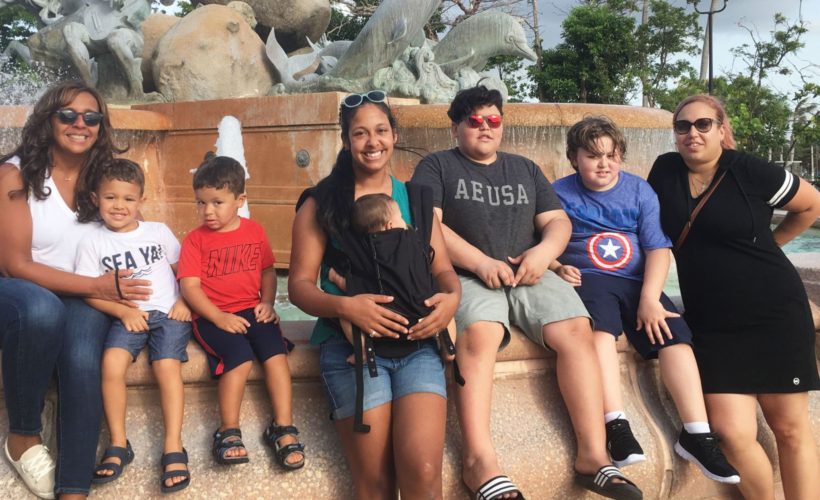Sooner or later, retirement starts whispering your name.
Ray Warner, 45, has thrown in the towel.
Warner says the economic indicators point to a stacked deck. Only the top 1 percent is doing well economically. “For the middle class, it’s not too good,” he said. “Saving for retirement is pointless, so I never bothered.”
Warner’s friends aren’t receiving pay increases, he says. The stock market is going up, yet no one in his circle has enough money to invest. Local plants are closing.
Warner, who lives in Bethel Park, Pennsylvania, was downsized in August from Verizon in the middle of cutbacks and overseas outsourcing.
For retirement savings, he has a Verizon 401(k) with about $10,000 in bonus compensation contributed by the company. Warner hopes to find a new job that offers a 401(k) so he can move the assets to the new account.
“I don’t plan to be able to retire,” Warner said. People his age are not as secure financially as the previous generation, he says. His mother, for example, was head cook at an elementary school. Her retirement was made possible by a pension from the school district.
Some in their 50s and 60s may not even have had the advantage of some common retirement strategies when they were starting out in the work world. Barbara Delaney, principal at Stone Street Advisor Group, remembers when workplaces simply didn’t have retirement savings options.
A former employee with EF Hutton, Delaney says the brokerage firm began offering a 401(k) in 1987. Before that, the company had a pension plan with a 10-year vesting schedule. When another company took over and closed her department, Delaney lost out on a future pension and about eight years of retirement saving.
A top strategy for those getting a late start is to save as much as you can and push back your retirement age. “Money is money,” Delaney said. “If you’ve lost those years, you’re going to have to plan on working a little longer.”
It’s a hard conversation she has with many of her clients.
People commonly overlook the fact that Social Security is a good income replacement for those who make less than $60,000. To that end, Delaney recommends claiming Social Security as late as possible. “People take it at 62 because they think they’re going to die early,” she said.
Delaney helps people find ways to bridge the gap between the end of a paying career and the start of Social Security benefits, such as dipping into a 401(k) or accumulated savings.
Relocating to a cheaper area to save on monthly expenses, such as property taxes, is another way to cut spending. “The fixed costs of living in New York are triple what you might pay in Delaware or South Carolina,” she said.
Three strategies for late retirement savers
Spend less
Sharon Cutler and her husband cut back substantially on dinners out and extravagant spending. “I find that money is not the solution to happiness,” Cutler said.
Make more
Be flexible. If you can’t earn more, perhaps you can take on a small side hustle, such as occasional dog-walking. Peg McNichol, a morning news anchor in Holland, Michigan, rents out a room in her apartment to help with monthly expenses.
Invest more
Depending on your personality, you can invest aggressively. But if you’re not a risk taker and won’t be able to ride out five years of bad markets, don’t do it, says Barbara Delaney, a retirement planning consultant with Stone Street Advisors. “Do some soul searching,” Delaney said.
A Roth IRA can be a boon for reducing someone’s taxable income. “If we can have an older person start a Roth and take distributions to bridge the gap, it comes out tax-free,” Delaney said. If someone can get to zero taxable income, they will then save on Medicare premiums because it is means-tested.
“Health care is costing us a lot,” she said, especially in retirement and especially if someone has a chronic illness.
More in Personal Finance:
5 things to do in your 30s to save your financial life
Want to be rich someday? Do these three things
Here’s what you need to know to start a successful side hustle
A realtor who lives in New York, Adrienne J. (who didn’t want her last name disclosed) does not think she’ll be able to retire.
Uneven income combined with high health-care costs makes saving for retirement difficult. Ten percent of Adrienne’s income goes to health insurance, and another 20 percent to out-of-pocket health-care costs. Adrienne also has hefty credit card debt near $90,000 on a no-interest rate card.
Adrienne now keeps a tight grip on her finances. “I roll my loose change and keep track of money in a way I never have before in my life,” she said.
Money-saving moves include cutting grocery spending and putting her child on Child Health Plus, a savings of $500 a month.
Adrienne now buys food in smaller quantities, always paying cash – and she no longer buys only high-quality, organic, grass-fed meat.
Adrienne has about $100,000 in a retirement savings account and another $9,000 in an annuity, which could pay out in about eight years. She has scouted moving to Florida to save on expenses. She may inherit some money.
“I think I’ll stay like this till I turn the ship around,” Adrienne said. She deeply regrets past money spent on expensive gifts, entertaining and allowing others to use her nanny without ever reciprocating the favor.
Peg McNichol, a morning news anchor in Holland, Michigan, is 60.
A patchwork of strategies will help her retire, someday.
McNichol used to say, “I’ll work till I’m dead because I love being a journalist.”
But as her friends have begun hitting their 60s, many are retiring and some have physical disabilities. It’s a wakeup call.
Student debt of around $25,000 prevents her from retiring any time soon.
McNichol says she can probably retire at 62. “But if you have one major medical event, all the cards are in the air,” she said.
Retirement timing is a topic she revisits frequently. “I just got a job I love,” she said. The company has excellent retention and she’d like to stay for a long time. For savings, she has a few thousand saved. Social Security would give her only about half her current monthly paycheck.
What-if scenarios include unexpected medical issues. “I have to think in terms of a medical condition that prevents me from driving to work,” she said. She will then scale back her lifestyle to afford whatever her income is.
“It’s not like I don’t think about this stuff,” she said. “I do, but I never articulated this beyond casual conversations with a friend.
“That is part of the problem with retirement,” McNichol added. “We think about it, but we don’t talk about it.”
At 71, Sharon Cutler is starting over.
Cutler, who lives in Chicago with her husband, had an entrepreneurial career with a niche in the 50-plus market, producing expos, a senior health hotline and an online magazine. She also co-wrote a book on ’60s pop music.
“I thought that life would continue to be without worry,” Cutler said. “I didn’t think that I would have to consider anything else but normal retirement years.” The couple had a carefree approach to spending. “How much dinners out added up was never on my radar,” she said.
In her early 50s, the loss of a child and a serious illness sidelined Cutler, and forced her to dip into retirement savings.
The couple then went through an extravagant phase, building a house in Florida and filling it with expensive furniture. “In retrospect, a lot of my acquisitions were ridiculously expensive,” Cutler said.
With limited retirement assets, Cutler now has a completely different view of money.
Instead of accumulating objects, she wants serenity and a sense of purpose. She has crafted a new life doing what she loves, and boosted her self-esteem by establishing herself as an author.
Some of Cutler’s friends have similar situations. One is a former fitness instructor in her late 60s who does dog walking. Another is 76 and works seven days a week just to get by.
“Things could always be worse,” Cutler said. “If you have food on the table and your health, you have it all.”
Sally Toro grew up poor. “I was never taught about saving or preparing for the future,” she said.
Through her 20s and 30s, she saved nothing. When she was 39, Bea Martin, a coworker at the financial company she worked for, asked if she was using the company’s 401(k). No, she answered. Between supporting her two daughters as a single mother and a salary of about $42,000, she simply could not afford to give up a cent.
“Do you know you are losing money by not putting in the minimum?” Martin asked. That got Toro’s attention. Martin urged her to give it a shot, telling Toro she could always stop saving.
Toro started putting 2 percent of each paycheck aside. “I was terrified I wouldn’t have $20 more on that paycheck,” she said. But she remembered what Martin said, that in a year’s time, she’d build up a cash reserve.
In a year, she accumulated about $4,000 and felt rich. “But I didn’t have the guts to continue increasing,” she said. Only when she moved onto another company did she begin slowly upping the percentage.
For the last eight years, Toro has actually been maxing out at $18,000 and even putting in the catchup contributions for those 50 and over.
A year ago she began working with a financial advisor. Between her 401(k) and two IRAs, she has close to $300,000 and hopes to retire at 62.
Whether it’s your upbringing or lack of confidence, you need to take the risk of putting away even 2 percent,” Toro said. “Be bold and try to save for yourself. It is your future.”
Source:CNBC





